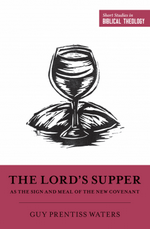 Facing the Last Enemy
Facing the Last Enemy
DETAILS: Publisher: Ligonier Ministries Publication Date: June 29, 2023 Format: Hardcover Length: 132 pg. Read Date: July 30 - August 6, 2023

What’s Facing the Last Enemy About?
Chapter 1 beings,
We all have questions about death. “What is death? Why do we die? Why do we all die? Why is death so scary? Why did Christ die? Why do Christians have to die? How can I face the death of someone I love? How can I prepare for death? How can I help others prepare for death? What happens after death?”
Essentially, the book is his attempt to answer those questions—largely along Scriptural and theological lines, but he also addresses some more practical aspects of preparing for death.
But before he answers those questions, Waters addresses some obstacles that 21st Century people face when thinking and talking about death seriously. We live in a culture of distraction, he says, which is nothing new but “we have taken distraction to new heights” between sports, movies, streaming services, the Internet, etc., etc. Secondly, we live in a “a culture of distancing and denial. We have all sorts of ways to try to keep death at arm’s length.” As a general rule, people go through the final stages of dying and death itself in an institution or facility of some sort—not home, surrounded by family and friends.
Those are the cultural obstacles, but there are some ecclesiastical obstacles as well. He points to the Evangelical embracing of consumerism—we treat people attending churches as customers, so we want to give them what they want to hear (things other than death) so they keep coming back. Secondly, there’s the embracing of an entertainment mentality. Death and dying are not entertaining at all—so we don’t discuss those things. Lastly, is the trend to divide congregations by age and stage of life, resulting in “a whole generation of Christians is deprived of witnessing the truth of Scripture exemplified and lived out in the lives of older Christians.”
Given these obstacles, it’s all the more important that people take steps to think about, study, and discuss things like death and the preparation for it.
The book is broken down into three parts. Part 1 “Defining Death” covers things such as the definition of death, why death is part of the world, why Christ died—why those who’ve trusted in Him continue to die, and so on. Part 2, “Encountering Death,” focuses on how we face the death of others—friends, acquaintances, family, and so on. How do we prepare ourselves to deal with (and grieve over) their deaths, how can we help them (both practically and spiritually) as they walk through the valley of the shadow of death? Then he spends two chapters on preparing for our own deaths—again, both spiritually and pragmatically (wills, living wills, burial choices, etc.) Then in Part 3, “Beyond Death,” Waters focuses on personal eschatology—the Resurrection, the Intermediate State, Final Judgement, and Heaven and Hell.
So, what did I think about Facing the Last Enemy?
The best thing that I can say about the book is that this is a good introductory—just look at the list of topics covered—in 132 pages you can’t say a lot about any of them. He does give some suggestions for further reading in the endnotes, which is good. But I wanted more. This feels like a well-developed outline than a book exploring the topics. It’s very likely the notes (or transcripts) of classes he taught for Ligonier that they put into book form—and those chapters would probably work for the time of Ligonier lessons. But if you’re going to take the time to turn those things into a book, you should as least expand on them a little bit.
Aside from that, there’s a lot to commend—on the purely theological issues, Waters is expectedly careful and thoughtful (or at least as thoughtful as he can). When it comes to definitions and explaining concepts he’s in line with the Westminster Standards—and the Christian thought throughout Church History. When it comes to contemporary concerns and the practical things that will vary from culture to culture—he’s careful to give advice and suggestions. When things are a matter of wisdom, prudence, or liberty, Waters says, “here’s some good ideas” or “think about this,” going out of his way not to label other options as sinful or his as “right.”
I think a conclusion wrapping things up, recapping some themes, and tieing into Chapter 1’s Introductory material would’ve been helpful. But that’s a matter of taste, I think. And the number of times I’ve said something like that over the last couple of years suggests that I really need to get over the idea of a concluding chapter.
Did I want more? Yes, particularly from someone of the caliber of Waters. Did I appreciate what we were given? Yes. It’s a great introductory volume and will undoubtedly be helpful for many.

This post contains an affiliate link. If you purchase from it, I will get a small commission at no additional cost to you. As always, the opinions expressed are my own.
![]()





